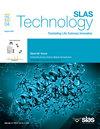AI-driven transcriptomic biomarker discovery for early identification of pediatric deterioration in Acute Care
IF 3.7
4区 医学
Q3 BIOCHEMICAL RESEARCH METHODS
引用次数: 0
Abstract
Early detection of juvenile clinical deterioration in acute care settings remains a significant problem in modern healthcare. This paper presents an AI-powered predictive analytics platform that combines transcriptome biomarker signals with structured vital signs, laboratory data, and unstructured clinical notes to improve early warning capabilities. The system uses ClinicalBERT to extract insights from clinical narratives, XGBoost to analyze tabular clinical information, and long short-term memory (LSTM) networks to simulate temporal dynamics. A meta-classifier combines multimodal data to produce real-time risk ratings for clinical deterioration. The performance evaluation utilizing five-fold cross-validation showed great accuracy, with an AUROC of 0.91, AUPRC of 0.83, and an average early warning lead time of 5.6 hours. Predictive markers included higher lactate levels, heart rate patterns, SpO₂ variability, and transcriptome signals indicating systemic inflammatory activation. Ablation investigations proved the importance of multimodal data fusion in increasing prediction robustness. The suggested strategy provides a scalable, interpretable, and high-performing hospital integration system that enables biomarker-informed, precision-based pediatric intervention options.
人工智能驱动的转录组生物标志物发现用于儿科急性护理恶化的早期识别。
早期发现青少年临床恶化在急性护理设置仍然是现代医疗保健的一个重大问题。本文介绍了一种基于人工智能的预测分析平台,该平台将转录组生物标志物信号与结构化生命体征、实验室数据和非结构化临床记录相结合,以提高早期预警能力。该系统使用ClinicalBERT从临床叙述中提取见解,使用XGBoost分析表格临床信息,使用长短期记忆(LSTM)网络模拟时间动态。meta分类器结合多模态数据产生临床恶化的实时风险评级。使用五重交叉验证的性能评估显示出很高的准确性,AUROC为0.91,AUPRC为0.83,平均预警提前时间为5.6小时。预测指标包括较高的乳酸水平、心率模式、SpO₂可变性和指示全身炎症激活的转录组信号。消融研究证明了多模态数据融合在提高预测稳健性方面的重要性。建议的策略提供了一个可扩展的、可解释的、高性能的医院集成系统,使生物标志物知情、基于精确的儿科干预选择成为可能。
本文章由计算机程序翻译,如有差异,请以英文原文为准。
求助全文
约1分钟内获得全文
求助全文
来源期刊

SLAS Technology
Computer Science-Computer Science Applications
CiteScore
6.30
自引率
7.40%
发文量
47
审稿时长
106 days
期刊介绍:
SLAS Technology emphasizes scientific and technical advances that enable and improve life sciences research and development; drug-delivery; diagnostics; biomedical and molecular imaging; and personalized and precision medicine. This includes high-throughput and other laboratory automation technologies; micro/nanotechnologies; analytical, separation and quantitative techniques; synthetic chemistry and biology; informatics (data analysis, statistics, bio, genomic and chemoinformatics); and more.
 求助内容:
求助内容: 应助结果提醒方式:
应助结果提醒方式:


